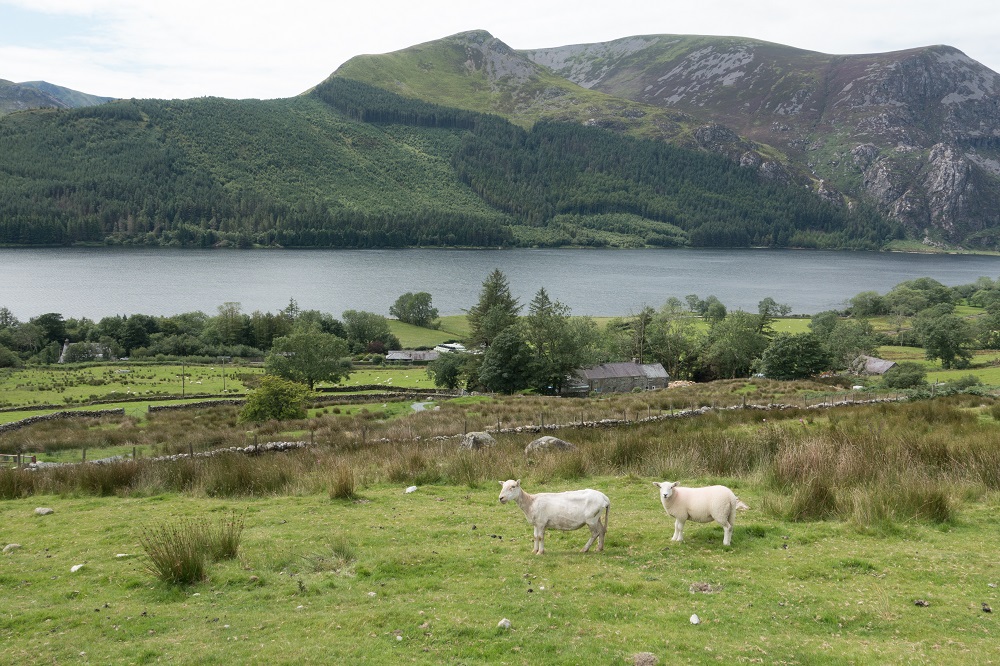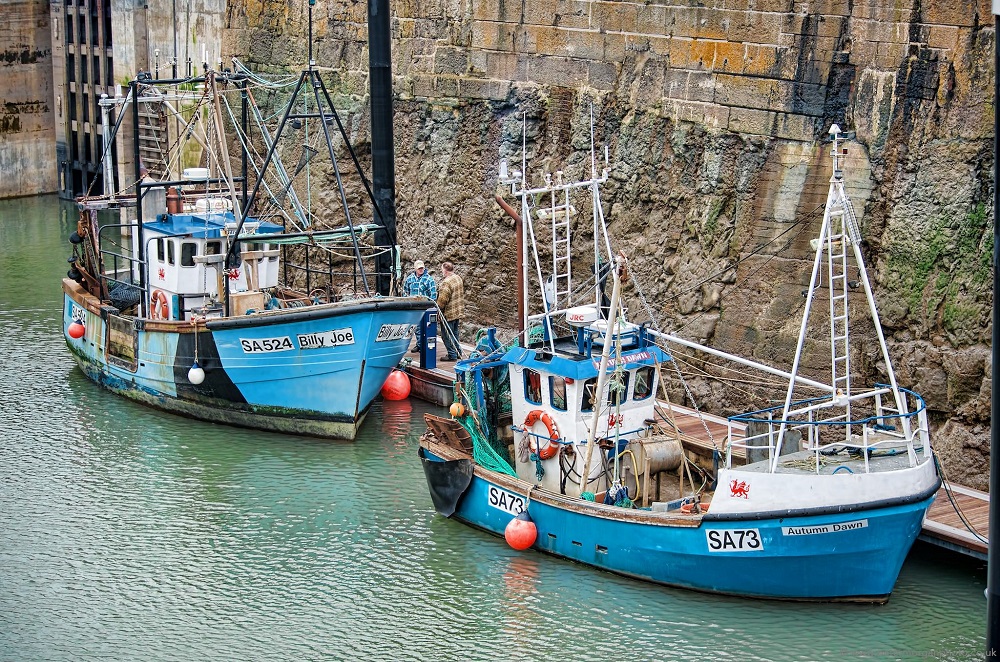Sustainable Farming Scheme – whose resource is it anyway?

Jon Parker, Wales Director for the Food, Farming and Countryside Commission
As the dust settles on the final consultation of the Sustainable Farming Scheme (SFS) and given a backdrop of high tensions, it’s easy to become overly focused on where Government has got things right and wrong with the new SFS.
As Lesley Griffiths rightfully points out, DEFRA has hardly bathed itself in glory with the issues over the border, but this is of little comfort to those in Wales who will be subject to the new devolved support structures.
We’ve been moving in the direction of payments for environmental goods and services from farmers for some time, but there can’t be many who would have thought that the entire scheme would be given over to actions without a clear base layer of support farmers have been familiar with.
As debates on land use increase, food production is just part of a conversation where increasing pressures for a more diverse set of outcomes are expected in return for money from the public purse. In this, the current debates around structuring the SFS have a highly relevant but overlooked predecessor in longstanding ructions around how our coastal fisheries are managed.
If they are prescient, Welsh Government will heed the lessons from ten wasted years in our marine sector and look to partnership as a key part of the solution.
With 80% of Wales farmed and a further 15% given over to forestry, Welsh Government need to have an agreement with the agriculture sector to support its ambitions for both biodiversity net gain and species recovery as well as the climate ambitions of net zero.
Reconfigured
Welsh farmland is a resource the Government is trying to influence through the SFS that will now no doubt be reconfigured, with concessions made to bring farmers on board.
With all this furore, it’s highly germane that Welsh Government actually has full devolved management control over a significant resource of which food is part in the form of our fisheries. To give an idea of scale, the Welsh Government managed marine zone doubles the size of Wales.
Like agriculture, our Welsh fisheries sit within a busy space, the ocean, where similar conflicts exist for different uses such as offshore wind, pipelines, aggregates and of course, nature. As is true for agriculture, the regulations and laws governing the sector are complex, and this is compounded by the way this is navigated both by Government and the supply chain.
From the perspective of Welsh Government – unlike the stock raised on Welsh farms – the fish and shellfish that call our waters their home is a wild harvested public resource. Our fishermen fish under licence with scrutiny and management undertaken by Welsh Government.

Historically, our fisheries were enforced by two well regarded Sea Fisheries Committees in north and south Wales, but as part of the post-2010 changes to how fisheries are managed in Wales, much like amalgamation of CCW, the Forestry Commission and the Environment Agency Wales, these committees’ functions were brought ‘in-house’ within the civil service.
As we hear in the many debates around the SFS and changes in land use, environmental groups advocate for impactful actions on nature and climate. The same has been true for our seas, but unlike the Welsh land resource where just over 10% is protected, the Welsh marine zone where the bulk of small-scale fishing takes place has Protected Areas covering 69% of our inshore waters.
The vast majority of Welsh fishing operators are small scale running day boats. The catching methods used for shellfish are among the least damaging possible with pots used for the main fisheries and some static netting for species such as Spider Crab.
From a UK perspective, our sea fisheries in Wales could be, if Welsh Government only had the ambition, the most sustainable in the UK. That’s some claim to make and if you were Welsh Government, it would be a fantastic advert to demonstrate to Welsh farmers just how adept our Ministers are at managing a public resource sustainably, for food, nature and climate.
Unfortunately, the opposite is the case, and how Welsh Government have managed fisheries in Wales is a case study of an inability to effect positive progress against its core constitutional principle of sustainable development.
Fisheries sector
Without delving too far into the annals of history, the similarities in the tensions between farming and environment that civil society is discussing right now have been played out in our devolved fisheries sector over the last fifteen or so years.
The environment lobby in 2012 pushed hard for the introduction of a number of Highly Protected Marine Conservation Zones (HPMCZ), but this was met with an effective response from fishermen’s associations. Some vessel operators were faced with the possibility of losing up to 50% of their fishing grounds, a very similar scenario to the tree and habitat debate we now see with the SFS.
The fishing sector reacted with support from the science and research community to produce positive alternatives, promoting ecosystem-based approaches to fisheries management, in much the same way as agroecology and regenerative practices are being promoted as progressive approaches to a fair farming transition, sharing land use for positive nature and climate outcomes.
Despite these solutions being brought forward by the sector, Welsh Government failed to grasp the opportunity to work in partnership and deliver. It has in fact reverted to the bare minimum of its statutory responsibilities for monitoring and the delivery of the new Fisheries Management Plans.
The result of this is that Welsh Government’s marine plan ambition and vision for the sector is not playing out.
The difficulties of the sector are, in fairness, not all of Welsh Government’s making, but from a fisheries management perspective, devolution has not been positive with fisheries being regulated in a boom-and-bust cycle of reactive as opposed to proactive management.
Multiple, well thought reports and approaches put forward have been shelved in favour of a business-as-usual approach of regulation, very much like the voluntary alternatives to the NVZ regulation that were put forward, lobbied against and then ignored.
When it comes to fisheries management, Welsh Government has been clear that it will co-design and co-produce fisheries management plans, but the final decisions regarding management structure will be taken by Welsh Government.
Co-management
When moving past co-design and co-production, there exists a concept and indeed benchmark for sustainable fisheries, namely co-management.
This is where all stakeholders are engaged in the decision making on the resource for environmental, social and economic good. Co-management has been an ask from key stakeholders across the marine sector for over a decade. Welsh Government finds it difficult to move to it, as it requires giving up ultimate control.
This approach could, however, be an absolute gift to Welsh Government to demonstrate to Welsh farmers how they could co-operate with a food producing sub-sector to support resilience in the food system and jobs in rural and coastal communities.
This is of real importance in the context of SFS, since Welsh Government are, as Mark Drakeford said in session, seeking a bargain with farmers on environmental outcomes in a context where subsidies exist in part at least to fill the gap created by our misaligned food system.
Equally, it can be said of farmers that they hold the voluntary card that allows them to step away from SFS and cause Welsh Government great difficulty in achieving objectives for nature and climate at pace. That is a stand-off neither party wants.
Post Brexit, the civil service has not applied the creativity, innovation or imagination to the structures framing how Welsh Government engages and supports the agriculture sector through the payments regime.
It appears that the requirement here is not for a scheme so much as for a partnership agreement.
Yes, we can absolutely co-design and co-produce the SFS, but the dialogue then needs to move to seek out opportunities for a form of co-management in land use.
Just as stakeholders in the fishing sector have asked the resource ‘owner’, Welsh Government, for consent to co-manage, in agriculture we have moved far away from headage and land to full environmental payments Welsh Government are seeking our farmers to deliver upon.
Government is however working on the assumption that it has the consent to do so. There is a real lack of recognition within Welsh Government of the step change it is asking farmers to make, which may be the Achilles heel in the whole development of the Sustainable Farming Scheme.
Our political leaders want Wales to be seen in the world as the most sustainable food producing nation on earth, but there is a long way to go to build consensus and to put in place the mediation to deliver that between the stakeholders.
Coming back to the question of whose resource is it anyway, there will be continued debates over land use decision making and change but we must respect those who will be at the heart of delivering the outcomes food, nature and climate.
We know through the initial work on Food, Farming and Countryside Commission’s food conversation, that this is what citizens want.
Support our Nation today
For the price of a cup of coffee a month you can help us create an independent, not-for-profit, national news service for the people of Wales, by the people of Wales.








The first pheasant road kills of spring this week on the Mawddach stretch of the A470…
No mention of bottom trawling or scallop dredging!
An interesting difference between how the fisherman and farmers have approached the proposals is hinted at above but then passed over. Fisherman decided to work with science to deliver an ecosystem based approach. Now with farming it’s the environmental lobby which are proposing such things via regenerative farming and agroforestry, but the farming groups have not really embraced that and are more focused on opposing significant change.